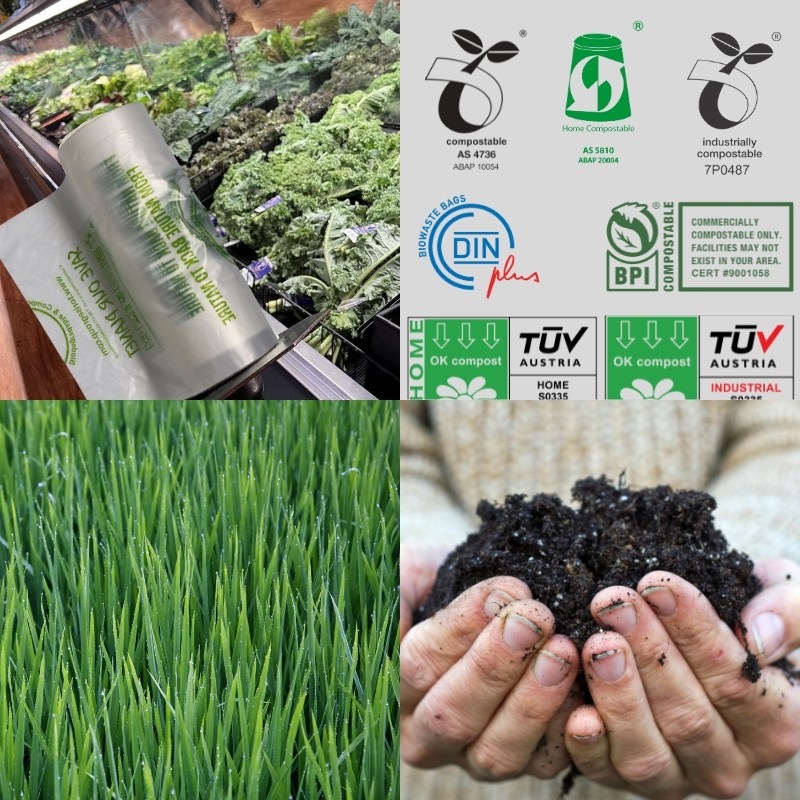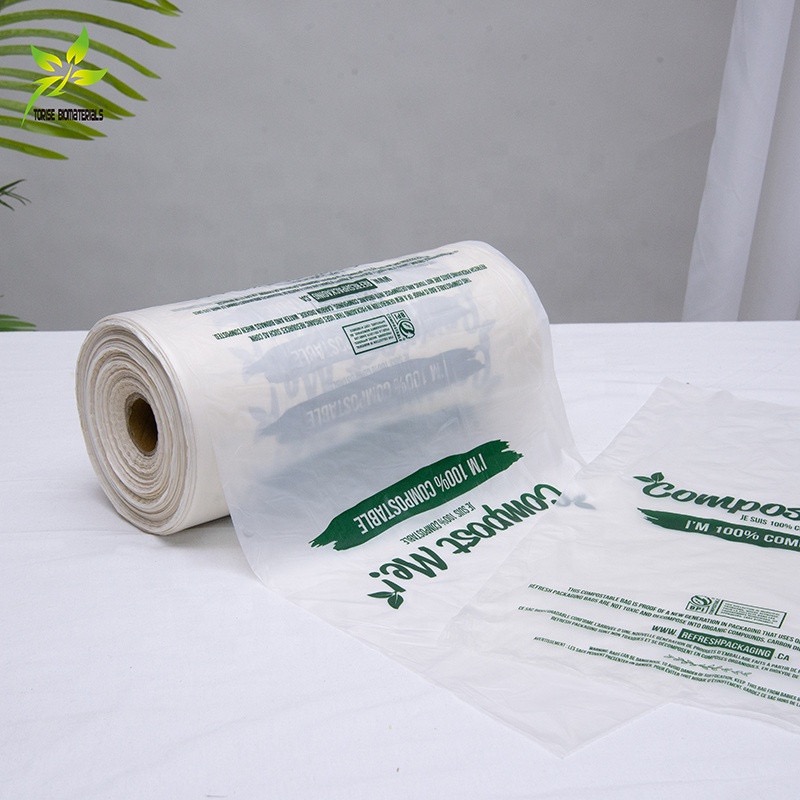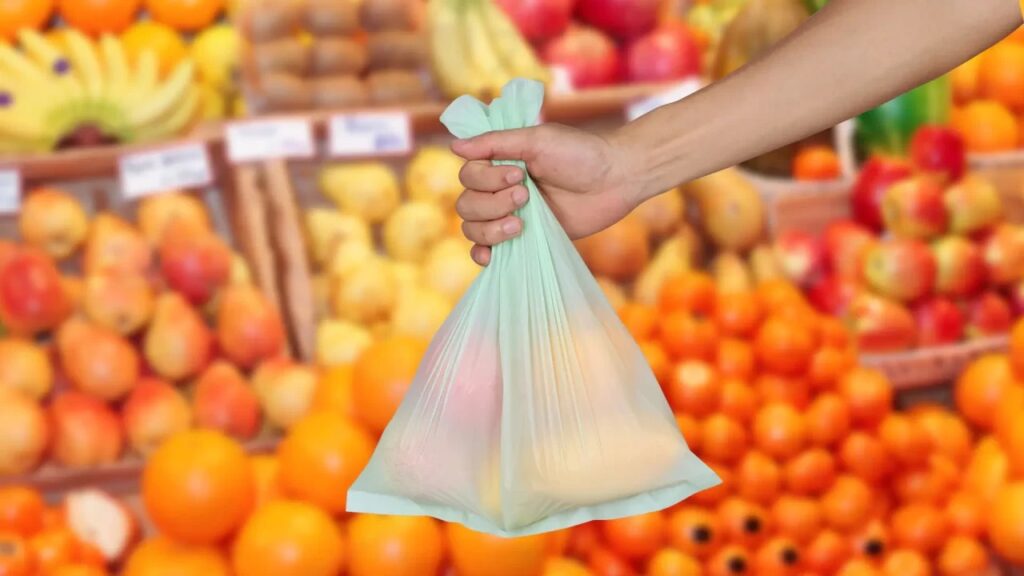As the world moves away from single-use plastics, many shoppers are asking: are produce bags compostable? The answer is: some are, but not all.
Most traditional plastic produce bags do not compost. However, some bags can break down naturally in certain composting conditions. This is especially true for bags certified with DINplus, ASTM D6400, OK Compost, or EN 13432.
In this article, I will explain what compostable produce bags are. I will show you how to tell the difference. I will also discuss what materials they contain and how your business can switch to them.
What Are Compostable Produce Bags?
Manufacturers create compostable produce bags from plant-based materials that break down naturally in compost systems. Unlike regular plastic bags that take hundreds of years to break down, these bags decompose into safe elements in just a few months.
They’re great for grocery stores, farmers’ markets, and eco-friendly brands looking to reduce plastic waste.
How Do Compostable Produce Bags Work?
Most compostable bags are made from materials like:
- PLA (Polylactic Acid) – made from corn starch
- PBAT (Polybutylene Adipate Terephthalate) – adds flexibility and helps with breakdown
- Starch Blends – fully plant-based and usually suitable for home composting
In industrial composting, these materials break down in 90–180 days. At home, they may take 6–12 months depending on temperature and humidity.

Certifications to Look For
To make sure the bag is truly compostable, look for these certifications:
| Certification | Region | Meaning |
|---|---|---|
| ASTM D6400 | USA | Industrial compostability standard |
| EN 13432 | Europe | Ensures biodegradation and eco-toxicity standards are met |
| OK Compost / Home | Global (TÜV) | Verified for both industrial or home compost conditions |
Always ask your supplier for certification documents.
Why Compostable Bags Matter for Your Brand
As the founder of HEMCBags, I’ve seen first-hand how eco-friendly packaging helps businesses build trust with modern customers. More than ever, buyers care about sustainability. Compostable bags send the right message.
- Reduces landfill waste
- Boosts brand reputation
- Meets new government regulations
According to McKinsey, nearly half of consumers are willing to pay more for green packaging. That’s a clear business advantage.
Price Comparison: Compostable Produce Bags
Here’s a quick overview of our most popular options:
| Bag Type | Size (inches) | Thickness | Certification | MOQ (pcs) | Price per Unit (USD) |
|---|---|---|---|---|---|
| Standard Produce Bag | 12 x 20 | 15 microns | EN 13432 | 5,000 | $0.035 |
| Home Compostable Bag | 12 x 20 | 20 microns | OK Compost HOME | 5,000 | $0.045 |
| Custom Logo Bag | 12 x 20 | 20 microns | EN 13432 | 10,000 | $0.05–0.07 |

FAQs About Compostable Produce Bags
Q1: Can I compost these bags at home?
Yes, if they’re labeled “home compostable.” Others may need industrial composting.
Q2: Will they break down in landfill?
Not easily. Compostable bags need heat, moisture, and microbes to break down. Landfills don’t provide ideal conditions.
Q3: Are compostable bags safe for food?
Absolutely. All our bags meet food-contact safety standards.
Q4: Do they expire?
Yes, typically after 12 months. Store them in a cool, dry place to keep them fresh longer.
Q5: Can I print my brand logo on them?
Yes! We offer full custom printing on all bulk orders.
Ready to switch to compostable bags?
With a minimum order of 5,000 pieces, our bags are perfect for bulk buyers.
Contact us today to discuss your needs and get a personalized quote!

